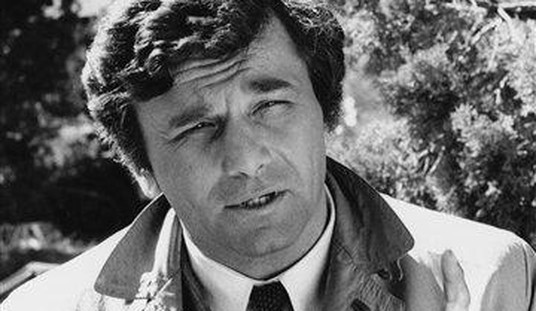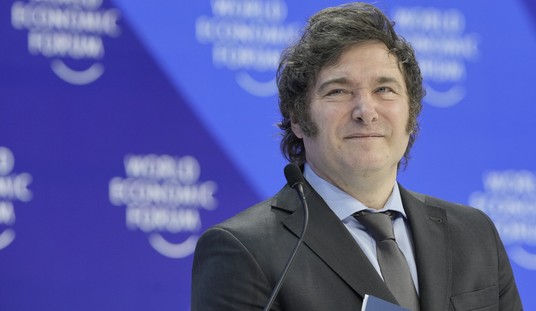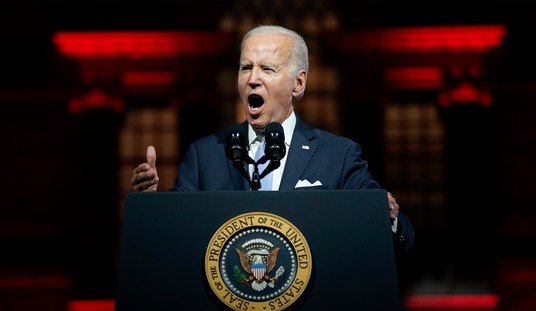California — has any American state ever gone from being a beacon to families and aspiring entrepreneurs to being a warning to the world so quickly?
I can’t immediately track down where I saw the quote, but Ronald Reagan, who used the Golden State as a springboard for virtually his entire career, first as an actor, then governor, then president, said that if the Pilgrims had landed in California, they would have never left to explore the rest of America, so rich were the state’s natural resources and so welcoming its year-round climate.
After World War II, California beckoned for millions of Americans. Back in October of last year, in one of her last articles for Commentary before she decamped to the Washington Post, PJM alumnus Jennifer Rubin beautifully described what moving to, then living in the state felt like in the 1960s through the 1980s. It’s also the title of this post:
When my parents announced they were uprooting the Glazer family from a cozy suburb of Philadelphia, as 5 million people did from eastern and midwestern towns between 1950 and 1980, the news was met with a mixture of awe (“California…” they would breathlessly whisper) and bewilderment (“But what is there?”). The very act of migrating by plane was itself somewhat grand. In the years before airline deregulation, one dressed up to fly, as if sailing on an ocean liner, and at prices not all that much lower than an ocean voyage’s. And yet those we were leaving behind acted as though we were traveling by caravan, leaving civilization and going into the wilderness.
In a real sense, even in 1968, California was the wilderness. If the cost of air travel was prohibitive for a family of modest means, they usually drove, and from the flatness of the Midwest they found themselves left speechless by the vision of the Rocky Mountains, rugged coastlines, wide beaches, and empty space they knew only from the movies. Like emigrants leaving the old country in the 19th century, they often arrived friendless and unaccustomed to the habits of their new environment. Public transportation was in scarce supply; instead there were gleaming freeways with five lanes on each side. Tie and jacket? More and more restaurants didn’t care. Informality pervaded dress and speech at a time when, back east, adults still commonly addressed acquaintances as Mister and Missus.
In Southern California, the aerospace industry was booming, and middle-class professionals from all over the country flocked to work in and around it. The movie studios had fallen into distress and decay due to the growing popularity of TV (before the blockbuster era of the 1970s drew audiences back out of their living rooms), but if you went to the Norton Simon Museum in Pasadena, you might spot the billionaire in a corduroy jacket whose name was above the door escorting Cary Grant around his collection. Every now and then you’d have a Fred Astaire or a James Stewart sighting.
In Northern California, Haight-Ashbury was still awash in the haze of the Summer of Love from the year before, the hippies and the gay community were moving in on the old Republican establishments of San Francisco and Berkeley, and San Jose was a sleepy town where a family of modest means could own a four-bedroom house near terrific schools for $27,000. Silicon Valley was farmland.
Forty-two years after I arrived in California, the very notion of an affordable, happy-go-lucky, optimistic, and “golden” state seems otherworldly. Its financial condition resembles Greece’s. Self-dealing and political scandals involving public-sector unions have become commonplace not only in Sacramento but also in cities from Mexico to Oregon. Thirteen percent of the state’s workforce is unemployed. Taxes (sometimes disguised as “fees” or “special assessments”) are among the highest in the country, school days are being cut, and state universities have cut off financial aid as they squeeze out in-state residents in favor of higher-paying out-of-staters.
In his latest column at National Review, Victor Davis Hanson describes how reprimitivized it particularly feels for some of the smaller towns outside of suburban regions such as the L.A. and San Jose area. “In the vast rural expanse between the Sierras and the Coast Ranges, and from Sacramento to Bakersfield,” VDH writes, “our rural homes are like stray sheep outside the herd, without whatever protection is offered by the density of a town. When we leave for a trip or just go into town, the predators swarm:”
I am starting to feel as if I am living in a Vandal state, perhaps on the frontier near Carthage around a.d. 530, or in a beleaguered Rome in 455. Here are some updates from the rural area surrounding my farm, taken from about a 30-mile radius. In this take, I am not so much interested in chronicling the flotsam and jetsam as in fathoming whether there is some ideology that drives it.
Last week an ancestral rural school near the Kings River had its large bronze bell stolen. I think it dated from 1911. I have driven by it about 100 times in the 42 years since I got my first license. The bell had endured all those years. Where it is now I don’t know. Does someone just cut up a beautifully crafted bell in some chop yard in rural Fresno County, without a worry about who forged it or why — or why others for a century until now enjoyed its presence?
The city of Fresno is now under siege. Hundreds of street lights are out, their copper wire stripped away. In desperation, workers are now cementing the bases of all the poles — as if the original steel access doors were not necessary to service the wiring. How sad the synergy! Since darkness begets crime, the thieves achieve a twofer: The more copper they steal, the easier under cover of spreading night it is to steal more. Yet do thieves themselves at home with their wives and children not sometimes appreciate light in the darkness? Do they vandalize the street lights in front of their own homes?
In a small town two miles away, the thefts now sound like something out of Edward Gibbon’s bleaker chapters — or maybe George Miller’s Road Warrior, or the Hughes brothers’ more recent The Book of Eli. Hundreds of bronze commemorative plaques were ripped off my town’s public buildings (and with them all record of our ancestors’ public-spiritedness). I guess that is our version of Trotskyization.
The Catholic church was just looted (again) of its bronze and silver icons. Manhole covers are missing (some of the town’s own maintenance staff were arrested for this theft, no less!). The Little League clubhouse was ransacked of its equipment.
In short, all the stuff of civilization — municipal buildings, education, religion, transportation, recreation — seems under assault in the last year by the contemporary forces of barbarism. After several thefts of mail, I ordered a fortified, armored mailbox. I was ecstatic when I saw the fabricator’s Internet ad: On the video, someone with an AK-47 emptied a clip into it; the mail inside was untouched. I gleefully said to myself: “That’s the one for me.” And it has been so far. But I wonder: Do the thieves not like to get their own mail? Do their children not play Little League? Do they not want a priest at their funeral? Would they not like to drive their cars without worrying about holes in the street? Or is their thinking that a rich society can cover for their crimes without their crimes’ ever much affecting them — given that most others still do not act as they do?
I know it is popular to suggest that as we reach our sixties, everything seems “worse,” and, like Horace’s laudatores temporis acti, we damn the present in comparison to the past. Sorry, it just isn’t so. In 1961, 1971, and 1981, city street lights were not systematically de-wired. And the fact that plaques and bells of a century’s pedigree were just now looted attests that they all survived the Great Depression, the punks of the 1950s, and the crime-ridden 1970s.
A couple now in their early 90s lives about three miles away from me on their small farm. I have known them for 50 years; he went to high school with my mother, and she was my Cub Scout leader. They now live alone and have recently been robbed nine, yes, nine, times. He told me he is thinking of putting a sign out at the entrance to his driveway: “Go away! Nothing left! You’ve already taken everything we have.”
If California’s farmers have it rough, entrepreneurs endeavoring in other businesses in the state are suffering as well, Steven Malanga writes in the new issue of City Journal, summing up the state’s attitude towards business as “Cali to Business: Get Out!”
Last year, a medical-technology firm called Numira Biosciences, founded in 2005 in Irvine, California, packed its bags and moved to Salt Lake City. The relocation, CEO Michael Beeuwsaert told the Orange County Register, was partly about the Utah destination’s pleasant quality of life and talented workforce. But there was a big “push factor,” too: California’s steepening taxes and ever-thickening snarl of government regulations. “The tipping point was when someone from the Orange County tax [assessor] wanted to see our facility to tax every piece of equipment I had,” Beeuwsaert said. “In Salt Lake City at my first networking event I met the mayor and the president of the Utah Senate, and they asked what they could do to help me. No [elected official] ever asked me that in California.”
California has long been among America’s most extensive taxers and regulators of business. But at the same time, the state had assets that seemed to offset its economic disincentives: a famously sunny climate, a world-class public university system that produced a talented local workforce, sturdy infrastructure that often made doing business easier, and a history of innovative companies.
No more. As California has transformed into a relentlessly antibusiness state, those redeeming characteristics haven’t been enough to keep firms from leaving. Relocation experts say that the number of companies exiting the state for greener pastures has exploded. In surveys, executives regularly call California one of the country’s most toxic business environments and one of the least likely places to open or expand a new company. Many firms still headquartered in California have forsaken expansion there. Reeling from the burst housing bubble and currently suffering an unemployment rate of 12 percent—nearly 3 points above the national level—California can’t afford to remain on this path.
You can see that punitive tone in a microcosm in this quote from Willie Brown, the former San Francisco mayor, which Steve Green found recently:
If the Occupy people really want to make a point about the 1 percent, then lay off Oakland and go for the real money down in Silicon Valley.
The folks who work on the docks in Oakland or drive the trucks in and out of the port are all part of the 99 percent. They take our goods from all over the state and export them.
The only thing those cats down at Apple are exporting are our jobs. Then they have the nerve to ask for tax breaks, and Washington obliges.
As Steve writes, “There is no golden goose that any California politician wouldn’t gleefully hang, draw, and quarter for the sake of fifteen more minutes of power.” And yet Sacramento wonders why entrepreneurs are fleeing the state.
But hey, cheer up! For it’s all downhill from here. “Look around you. From now on, it gets worse,” Mark Steyn warned this year in After America:
In ten years’ time, there will be no American Dream, any more than there’s a Greek or Portuguese Dream. In twenty, you’ll be living the American Nightmare, with large tracts of the country reduced to the favelas of Latin America, the rich fleeing for Bermuda or New Zealand or wherever on the planet they can buy a little time, and the rest trapped in the impoverished, violent, diseased ruins of utopian vanity.
“After America”? Yes. It will linger awhile in a twilight existence, arthritic and ineffectual, declining into a kind of societal dementia, unable to keep pace with what’s happening and with an ever more tenuous grip on its own past. For a while, there may still be an entity called the “United States,” but it will have fewer stars in the flag, there will be nothing to “unite” it, and it will bear no relation to the republic of limited government the first generation of Americans fought for. And life, liberty, and the pursuit of happiness will be conspicuous by their absence.
In Reagan’s epochal “Time for Choosing” speech nearly half a century ago, he said:
Not too long ago, two friends of mine were talking to a Cuban refugee, a businessman who had escaped from Castro, and in the midst of his story one of my friends turned to the other and said, “We don’t know how lucky we are.” And the Cuban stopped and said, “How lucky you are? I had someplace to escape to.” And in that sentence he told us the entire story. If we lose freedom here, there’s no place to escape to. This is the last stand on earth.
And it’s slipping away fast. In some regions of America, much faster than others.
Update: Welcome readers clicking in from:









Join the conversation as a VIP Member